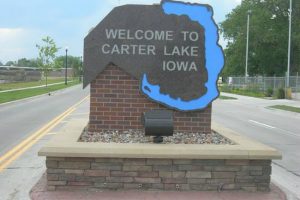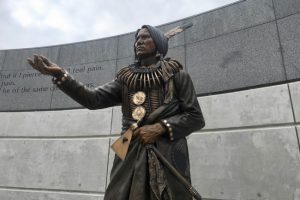 Ponca tribe’s hopes to build a full-fledged gambling center in Carter Lake might finally become reality despite Council Bluffs’ efforts to thwart the project. Late last year, the City of Council Bluffs filed a lawsuit in the Federal Court for the Southern District of Iowa, claiming that the Ponca grounds are not eligible for a casino. According to the latest updates, the Ponca Tribe of Nebraska unveiled its intention to build a large-scale gambling facility similar to one it proposed in 2007.
Ponca tribe’s hopes to build a full-fledged gambling center in Carter Lake might finally become reality despite Council Bluffs’ efforts to thwart the project. Late last year, the City of Council Bluffs filed a lawsuit in the Federal Court for the Southern District of Iowa, claiming that the Ponca grounds are not eligible for a casino. According to the latest updates, the Ponca Tribe of Nebraska unveiled its intention to build a large-scale gambling facility similar to one it proposed in 2007.
Last week, Larry Wright Jr., chairman of the tribe announced that the tribal leaders are currently exploring the various options for their proposed casino in Carter Lake, keeping the tribal members up to date on the latest casino details.
In November last year, the National Indian Gaming Commission gave the go-ahead to a proposal that called for a casino with 2,000 slot machines, 50 table games and a 150-room hotel in Carter Lake. The Commission allowed the tribe to build its entertainment center on 5 acres of land it owns in Carter Lake. Under the federal law, recognized tribes are allowed to offer gambling on their tribal lands, as long as gambling is legal in the particular state.
Council Bluffs Tries to Block Casino Expansion in Carter Lake
 It is important to note that Nebraska does not allow casino-style gambling. In that sense, the Ponca Tribe of Nebraska re-directed its attention to Iowa, and more precisely Carter Lake. However, Council Bluffs City Attorney Richard Wade took the National Indian Gaming Commission’s decision to court. He argued that Carter Lake site qualifies as Ponca “restored lands” after the tribe regained federal recognition three decades ago. Hence, the tribe is not allowed to use the land for the construction of a casino facility.
It is important to note that Nebraska does not allow casino-style gambling. In that sense, the Ponca Tribe of Nebraska re-directed its attention to Iowa, and more precisely Carter Lake. However, Council Bluffs City Attorney Richard Wade took the National Indian Gaming Commission’s decision to court. He argued that Carter Lake site qualifies as Ponca “restored lands” after the tribe regained federal recognition three decades ago. Hence, the tribe is not allowed to use the land for the construction of a casino facility.
In addition to that, Wade argued that Carter Lake casino could “steal” players from the existing casinos in Council Bluffs, offering players higher payouts. Roughly estimated, Council Bluffs collects around $3 million in fees and taxes on gambling per year. The community also receives about $8 million a year in charitable contributions from the casinos.
According to the Indian Gaming Commission, there are 506 tribal gambling facilities operated by 244 tribes across 29 states. Native American tribes took unprecedented action to initiate Native gaming facilities. In that sense, tribally-owned casinos have turned into an important economic factor. The Indian Gaming Commission estimated that gross tribal gambling revenue reached $31.2 billion in fiscal year 2016.
It is yet too early to say what will be the future of Carter Lake casino, but the fact that economic factors loom large in the development of the gambling industry offers a ray of hope for the construction of a casino in Carter Lake.



















